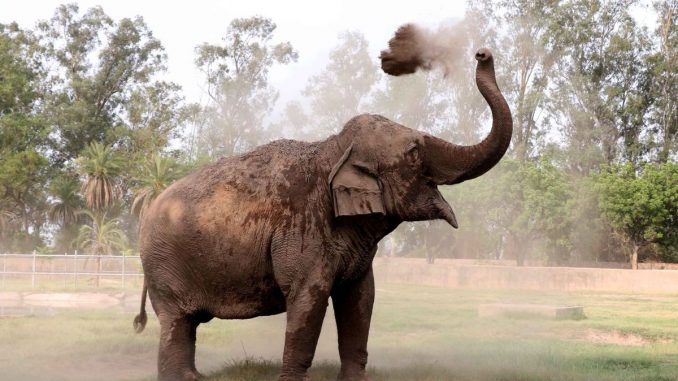
An Indian Cabinet minister accused her colleagues in the Environment Ministry on June 9 of failing to protect the country’s wildlife by allowing states to cull populations of monkeys, elephants, wild boars and antelopes.
The permissions are inspiring a public “lust for killing,” said Minister for Women and Child Development Maneka Gandhi. She joined animal rights activists in accusing the Environment Ministry of playing politics by siding with farmers who complain that the animals are damaging their crops, despite the overall decline of most animal populations.
The sharp criticism of an Indian minister by another is unusual in Prime Minister Narendra Modi’s government, where Cabinet members generally keep silent except to espouse approved national policies or reiterate pledges to boost the economy.
Environment Minister Prakash Javadekar, apparently surprised by the criticism from within his own administration, declined to respond directly to Gandhi’s remarks, except to say that the permissions given for killing wildlife are targeted, scientifically safe and legal if requested by local authorities.
“If there is a proposal by a state government, we allow killing of animals in a certain area for a certain period for scientific management. That’s the existing law,” he said.
Gandhi said, however, that the approvals are encouraging a frenzy of killing, including in areas where no permission was given.
“There is a lust for killing. It’s shameful,” Gandhi said. She said a family of gunmen from the southern city of Hyderabad “is going around killing animals across the country” with impunity.
Javadekar and other officials in the Environment Ministry did not comment on the allegations.
Protecting wildlife is a point of pride for many Indians, who laud their nation’s pioneering tiger conservation program launched in the 1970s and note the religious reverence paid to monkeys, elephants and cows considered to be the earthly embodiments of Hindu gods.
Nevertheless, wildlife conservation experts have raised alarms about threats to animals from rapid economic development, polluting industries, deforestation and human encroachment into animal habitats as the human population grows beyond 1.25 billion people.
The country’s animals are also threatened by rampant poaching, the result of high demand for tiger bones, rhino horns, pangolin scales and other animal parts used in traditional Chinese medicine. Endangered songbirds and threatened turtles are routinely found for sale in markets as pets.
The International Union for Conservation of Nature’s Red List, generally considered to be the most comprehensive, lists hundreds of Indian species of mammals, birds, amphibians and reptiles as vulnerable, endangered or critically endangered and at risk of becoming extinct.
Gandhi and animal rights activists said authorities should instead be educating people about avoiding conflicts with animals, using noisemakers and fences to prevent animals from encroaching on farmland, and better protecting wild habitats from pollution and development.
Instead, “In West Bengal, the ministry has issued orders to kill elephants. In Himachal Pradesh it has ordered for monkeys to be killed, and in Goa the peacocks are being killed,” Gandhi said. “But with forests being bulldozed down, and humans encroaching into animals’ homes, animals are simply being left with nowhere to go.”
Source: India West

Leave a Reply